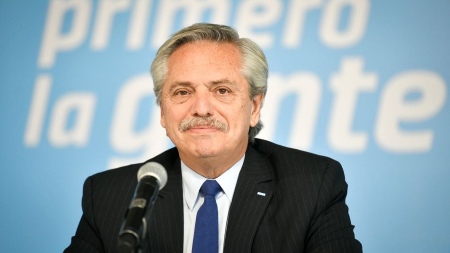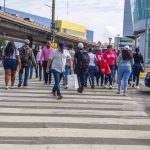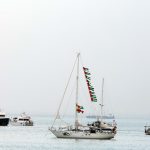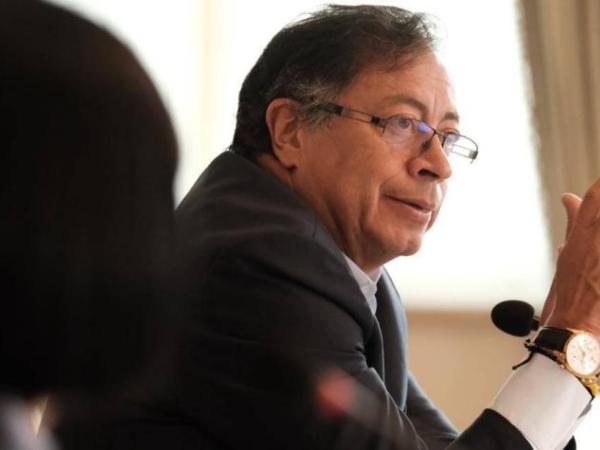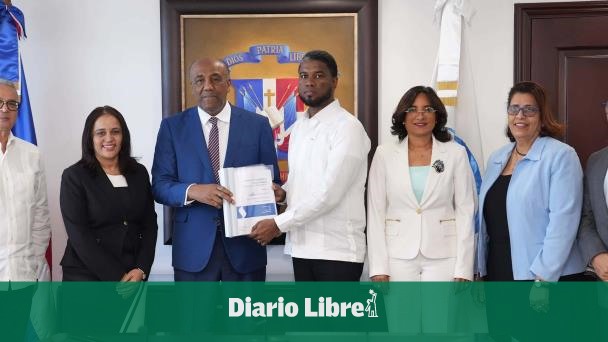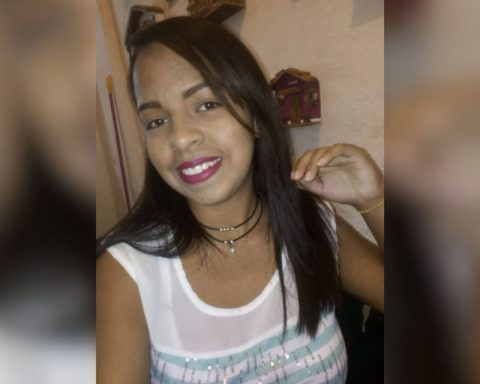President Alberto Fernández announced this Sunday that, as head of the Justicialista Party (PJ), he will call for the formation of “a (political) table that designs the electoral rules” of the Frente de Todos (FdT) and “the strategy to follow with a view to the different elections this year” that will be held to elect governors, national legislators and president.
“I am confident that this area of debate will serve to open the call to the social, production and labor sectors that accompany our government coalition with whom we share the same country project,” Fernández added in a letter that he reproduced in your Twitter social network account.
“It is my intention that the referents who come together with different perspectives on Peronism, together with referents of the Renovation Front and other political forces, establish the rules of competition that sustain the unity that leads us to victory”Alberto Fernandez
The setting up of a political table to discuss the electoral strategy of the ruling party had been requested by different referents of the ruling coalition to face the campaign facing the renewal of authorities and legislators in 22 of the 24 jurisdictions, and at the national level president and vice president, 24 senators and 130 deputies.
As president of the PJ, the most important party in our government coalition, I have decided to convene in the coming days the formation of a table that designs the electoral rules of the Front and the strategy to follow with a view to the different elections this year.
– Alberto Fernandez (@alferdez) February 5, 2023
Fernandez noted: “Our governors and governors and our mayors and mayors must define the leadership nucleus that represents the territorial force of the Frente de Todos.”
“It is my intention that the referents who come together with different perspectives in Peronism, together with referents of the Renewal Front and other political forces that participate in space, establish the competition rules that sustain the unity that leads us to victory,” he continued. .
Likewise, the President stated: “We do not want Argentina to return to a past of persecution of opponents, indebtedness, flight of their capital, falling wages and deindustrialization like the one we suffered during the Government of Together for Change “.
“These challenges force us to work so that our Front is consolidated around a project for an inclusive country that is developed respecting federalism. A country that recovers courts that impart justice and do not submit to factual powers,” concluded Fernández.
The President’s announcement was read with great expectation from the ranks of Kirchnerism, from where they valued the news and indicated that they hope to learn more details about the “strategy that is proposed to the whole of the Frente de Todos.”
“In addition to the electoral strategy and candidacies, we believe it is necessary to discuss the policies that will be developed to win over the electoral majority that accompanies and accompanied our political front,” they evaluated from the FdT space that vindicates the mandate of Néstor Kirchner and the two periods by Cristina Fernandez.
In electoral matters, one of the particularities of this year that the ruling party must take into account is that at least 15 provinces will split the provincial elections from the national ones, with the PASO scheduled for August 13 and the general elections scheduled for August 22. October.
Fernández had already been analyzing the assembly of that political table and had transmitted to his relatives his vocation to “build it and take charge”, near the end of the year, according to details of those close to the head of state.
Other voices on the electoral panorama of the ruling party
The governor of Chaco Jorge Capitanich, He called last Tuesday, in advance of the meeting of the Buenos Aires justicialismo that took place in Merlo, to constitute “a political table of articulation” of the pro-government coalition in the face of this year’s presidential elections.

“Today we are facing the prospect of an electoral process without a definition of political strategy. There is a lack of a political articulation table, which is possible and necessary to do,” he had exhorted in statements to the press.
Two days later, the spokesperson for the Presidency, Gabriela Cerruti, had announced that the head of state himself was already working on it, since “as president of the PJ, he is analyzing the formation of a table that works on the electoral strategy.”
And on the same point, he had analyzed: “We are beginning to see those debates and alignments that are part of everything that has to happen in a normal electoral process, in which we are all going to work to guarantee that the victory of the right in Argentina, which made us go back so far”.
Another of the issues to be defined by the ruling party’s political table will be whether it presents a single list or there will be competition in the PASO, with different applicants who will decide among themselves who will be the candidate for the Presidency that finally represents the coalition.
The President himself had said towards the end of last year to the C5N channel that the presidential candidate of the FdT in the next elections will be “the one who meets the best conditions”, and based on this criterion he stated that whoever wants to present himself as the ruling party in the PASO you will be able to do it.
Capitanich also defended the need for primaries and expressed that “leadership must arise from the popular will that is expressed in the PASO.”
Regarding the candidacies, Alberto Fernández said in Madrid on May 10 of last year, during an interview with the Spanish public channel RTVE, that he would go for re-election, although he later clarified that it was not yet the time to be “thinking about that”. .
For his part, sources close to Sergio Massa They pointed out to Télam that for the Tígrense “it is incompatible to be Minister of Economy and a candidate for president”, a phrase that the head of the Palace of Finance is repeating in various areas.
In the field of pre-candidates, Capitanich from Chaco, the chief of staff, Juan Manzur – who does not rule out competing for the governorship of Tucumán – and the Minister of the Interior, Eduardo “Wado” de Pedro, are also mentioned.
While, Vice President Fernández de Kirchner initially announced that her name will not be on any ballot this year electoral, while in a second intervention, during an act in Avellaneda, she remarked that the limitations she faced in electoral matters were due to a “proscription”.

The head of the Senate thus referred to the perpetual special disqualification established in the first instance in the ruling of the Roads case, to which her son and head of the Buenos Aires PJ Máximo Kirchner also alluded a week ago in an interview with the portal El Cohete to La Luna, where he warned: “If Cristina wanted to stand for election, they would get the firm sentence out of her in five minutes.”
Despite what was interpreted as the decision to withdraw from any candidacy, in recent weeks an “operative clamor” began to grow, driven by political, union and social groups of Kirchnerism that call for “breaking with the ban” and that on 24 of next March they will converge in the mobilization of the Day of Remembrance under the slogan “Democracy or mafias”.
In any case, the FdT political table must define these issues with a deadline of June 24, the day on which the closing of lists of pre-candidates is scheduled.
